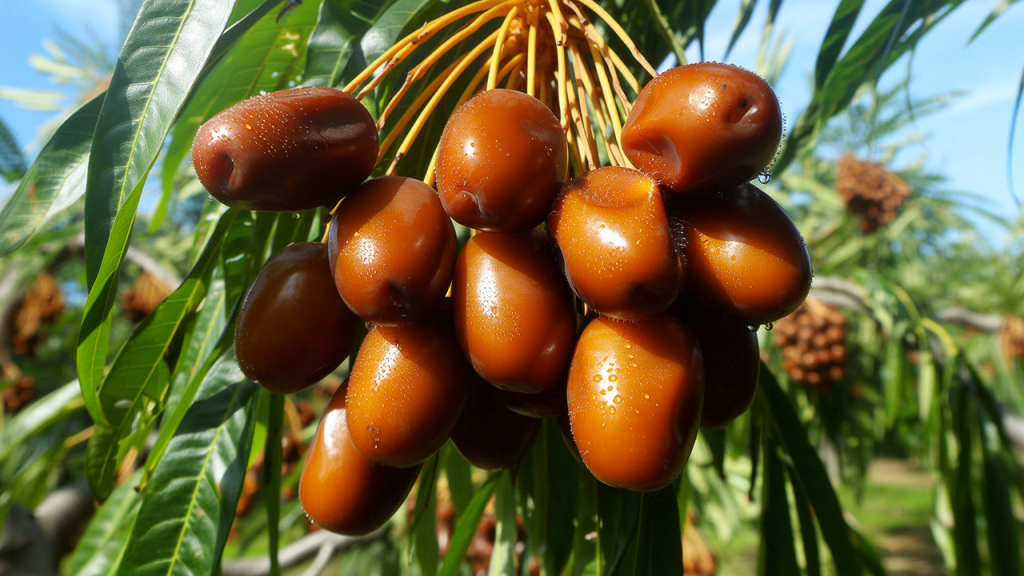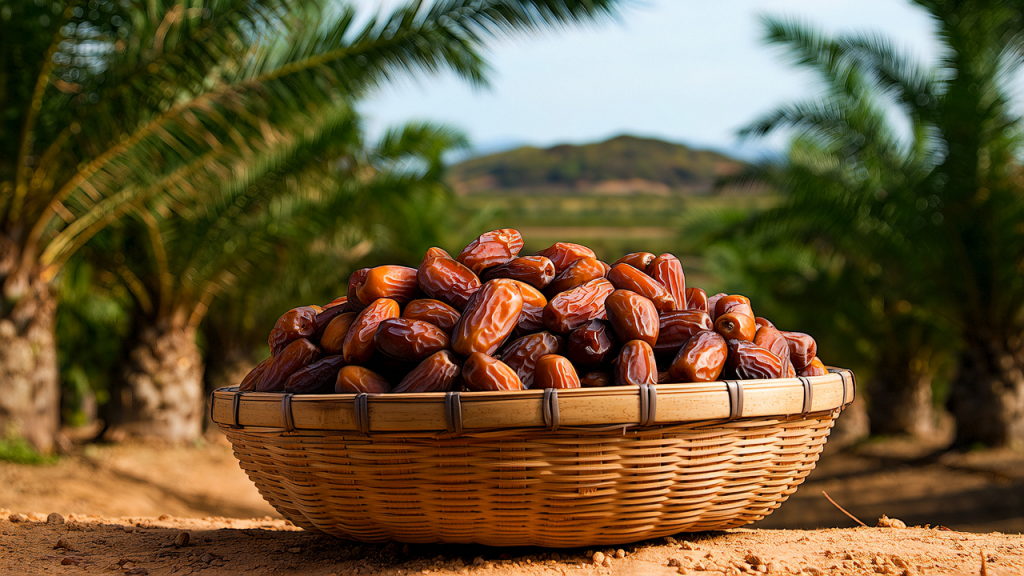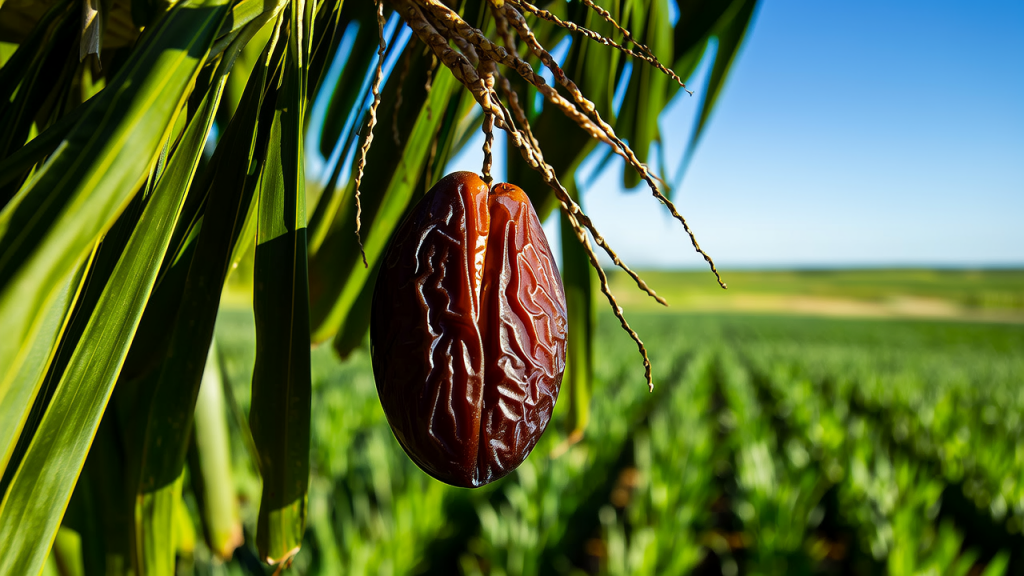Date palm harvest cheats
Maximizing Yield & Solving Growers' Top Challenges
(Based on the synergistic application of soil restoration, resilience strengthening and functional fertilizers)
(Date palm harvest cheats) Date palms (Phoenix dactylifera) are vital cash crops across the Middle East, North Africa, and California, yet growers face persistent challenges in yield optimization, pest control, and fertilization. This evidence-based guide integrates peer-reviewed research and field-tested solutions to address these pain points.
1. Optimal Growing Conditions for Date Palms
1.1 Climate & Soil Requirements
Date palms thrive in arid/semi-arid climates (28-35°C daytime, >1000mm annual evaporation) with deep, sandy loam soils (pH 7.0-8.5). Key production regions:
- Middle East (Saudi Arabia, UAE – 85% global production)
- North Africa (Egypt, Tunisia – high-quality Medjool varieties)
- USA (California – advanced irrigation tech)
🔗 Reference: FAO Date Palm Cultivation Guide
1.2 Water Management
- Drip irrigation saves 40% water vs. flood irrigation (Journal of Arid Environments, 2022).
- Salinity tolerance: ≤4,000 ppm (use calcium-magnesium liquid fertilizers to mitigate salt stress).
2. Top 5 Date Palm Challenges & Science-Backed Solutions
2.1 Low Fruit Set & Poor Pollination
Problem: Natural pollination success <30% (requires manual intervention).
Solutions:
- Hand pollination (increases yield by 50-70% – Oman Agricultural Research, 2021).
- Apply 10-40-10 water-soluble fertilizer + amino acid foliar spray during flowering to enhance pollen viability.
2.2 Bayoud Disease (Fusarium Wilt)
Problem: Fungal disease destroys 60-80% of Moroccan plantations.
Solutions:
- Resistant varieties: ‘Medjool’ and ‘Barhee’ show 30% higher survival rates.
- Soil treatment: Apply antifungal bio-organic fertilizer (e.g., Trichoderma-enriched compost).
🔗 Reference: UC Davis Pest Management Guidelines
2.3 Nutrient Deficiencies
Critical needs per hectare:
| Growth Stage | Key Nutrient | Recommended Fertilizer |
|---|---|---|
| Vegetative | N (300 kg) | 420-0-0 liquid N or slow-release urea |
| Fruit Maturation | K (250 kg) | 10-5-45 + fulvic acid to boost Brix levels |
3. Fertilization Strategies for 20-30% Higher Yields
3.1 Cost-Benefit Analysis of Fertilizer Programs
| Option | Cost (USD/ha) | Yield Increase |
|---|---|---|
| Conventional NPK | $450 | 12% |
| Amino acid + MKP combo | $680 | 25% (Saudi Journal of Biological Sciences, 2023) |
| Bio-organic + slow-release K | $600 | 22% |
Pro Tip: Our amino acid/calcium-magnesium liquid fertilizer reduces fruit cracking by 35% in arid zones.
3.2 Organic Matter Management
- Compost requirement: 2 tons/ha (mixed with humic acid granules to accelerate decomposition).
- DIY compost: Use our rapid compost activator (reduces maturation time from 6 months to 8 weeks).
4. Post-Harvest & Market Opportunities
- Shelf-life extension: Dipping in 1% calcium chloride solution reduces post-harvest losses by 40% (Postharvest Biology and Technology, 2022).
- Export potential: EU pays 2.5× premium for organic-certified dates.
Conclusion
Optimizing date palm production requires:
- Precision irrigation + salinity control
- Targeted fertilization (amino acid/MKP blends for flowering)
- Disease-resistant varieties + biological controls
For commercial growers and fertilizer wholesalers, explore our date palm-specific formulations at www.fertilizertrelfey.com/shop/, including:
- Root-www.fertilizertrelfey.com/shop/stimulating microbial inoculants (anti-nematode strains)
- 10-5-45 + TE water-soluble powder (for fruit swelling)
If you are interested in this article, or have any questions that need to be answered, You can find us at any time through the chat icon in the lower right corner of the webpage. Of course, you can also check out our other social media (such as LinkedIn) to learn more about us.

The canopy of the date palm forest with a customized nutrition plan was expanded by 30%, the photosynthetic efficiency of the leaves was increased by 45%, and the saline and alkali resistance was significantly enhanced.;

The sugar content of the pulp has been increased to 75°Brix, the dietary fiber content of the core nutrient has reached 12%, and the tannin content has been optimized to 0.3%, which is in line with the international jujube export standard (ISO 22000).

The fruit production of a single plant increased by 35%, the fruit diameter reached more than 3.5cm, and the output of fresh dates per ha exceeded 8 tons.;
